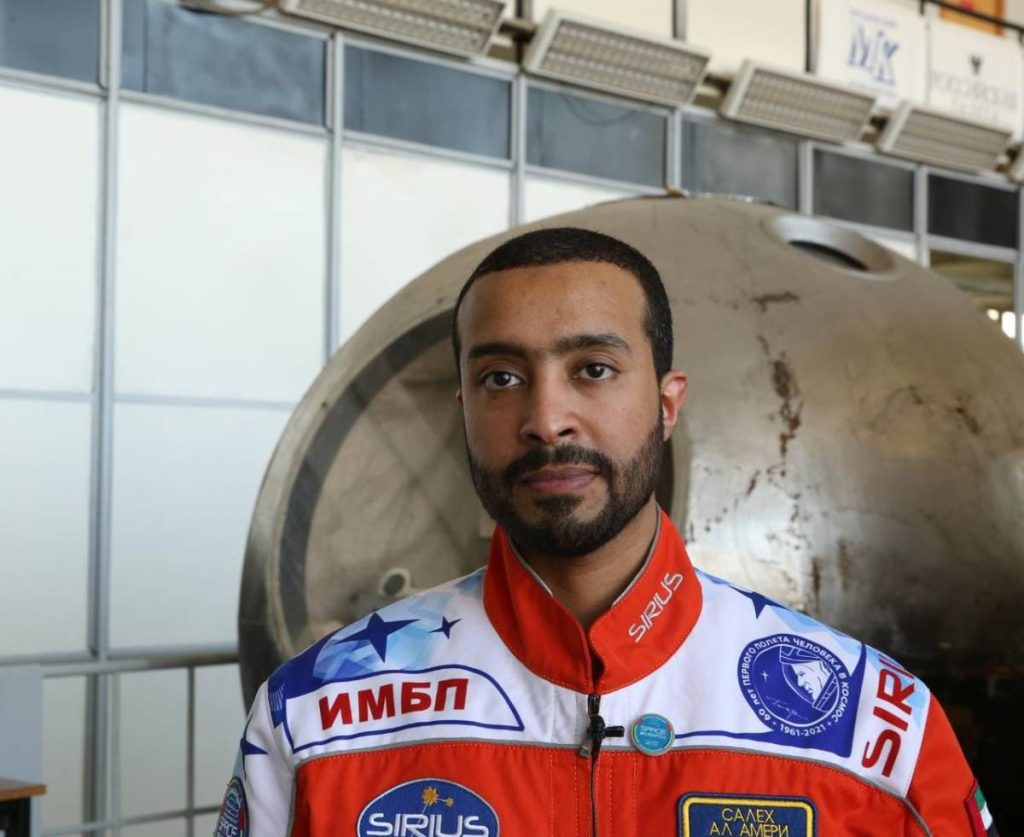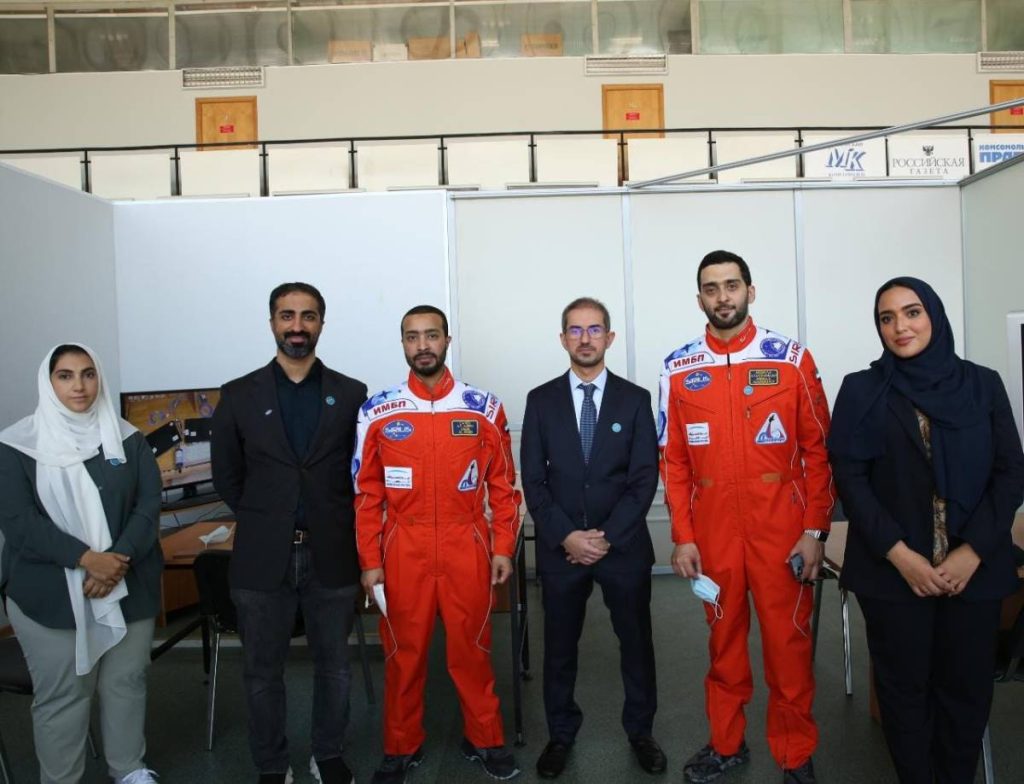
The Mohammed bin Rashid Space Centre (MBRSC) announced the accomplishment of the first UAE Analog Mission after achieving all its objectives with great success…reports Asian Lite News
This was achieved as part of the SIRIUS-21 programme that commenced on 4th November 2021 and lasted for 8 months to test the effects of isolation on humans’ psychological and physiological conditions.
Analog Astronaut Saleh AlAmeri from MBRSC took part in the mission representing the UAE, with Oleg Blinov, surgeon, Viktoria Kirichenko from the Institute of Medical and Biological Research in Moscow, and Ashley Kowalski and William Brown of NASA.

The participation of the UAE in the mission aimed to support scientific communities and research centres locally and internationally, as the outputs of the mission will positively reflect on scientific research efforts, especially since AlAmeri conducted 70 experiments during the mission’s period, including 5 experiments from four Emirati universities covering the fields of physiology, psychology, and biology.
The MBRSC initially announced the opening date of registration to participate in the Analog Mission in February 2020, receiving 172 applications. Following a stringent evaluation process in accordance with rigorous international standards, AlAmeri and AlHammadi were chosen as the two analog astronauts to begin the first UAE Analog Mission.
“Our recent accomplishments will strengthen our position in the global space community as a leader among nations with space programmes as well as contribute to new knowledge and innovation,” said Hamad Obaid AlMansoori, Chairman of MBRSC.

He explained that the people of the UAE are once again demonstrating the extent of their competence and capabilities in the space sector, which the world is witnessing. He added, “We aim to achieve continuous successes of various UAE initiatives through our upcoming projects. It is worth noting the UAE, analog astronaut Saleh AlAmeri, has contributed new knowledge and key developments to the Emirati space exploration project, thanks to his efforts and perseverance that led to the Analog Mission’s success.”
He also stated that the UAE’s participation in this mission, along with 4 other analog astronauts from the Institute of Biomedical Problems in Moscow and NASA, demonstrates the world’s confidence in our national cadres and also reflects the high value that our national initiatives and projects bring to the field of space exploration for the benefit of humanity and the global scientific community.
“Analog astronaut Saleh AlAmeri has successfully achieved the goals of the first UAE Analog Mission, which he accomplished through effort and perseverance during an 8-month isolation period within the SIRIUS-21 programme, noting that the positive results achieved through the scientific experiments that took place, will contribute significantly to studying the effects of isolation on human psychology and physiology, in addition to helping prepare for future space exploration missions,” said Salem AlMarri, Director General, MBRSC.
Saleh AlAmri’s experiments included the fields of physiology, psychology and biology, while the research of the Emirati universities selected for the mission included research from the Mohammed bin Rashid University of Medicine and Health Sciences, which focused on the effects of long-duration exposure to environments simulating life in space on changing the state of the heart. The research topic presented by the University of Sharjah highlighted the study of determining the effects of stress caused by isolation on circulatory and musculoskeletal function in crew members during the mission, with measurement of clinical, genomic, transcriptional, and proteomic parameters.
AlAmeri’s experiments, implemented successfully and with high efficiency, included simulating the operation of a space robot and reducing stress in isolation. He also conducted virtual reality experiments, such as launching a vehicle and securing its docking with the International Space Station, in addition to flying over the moon and Mars.
The results of his electroencephalogram experiment provided a clear picture of brain functions in isolation. This was done to help scientists gain more insights into the effects of long-term isolation on the brain and changes in its cognitive functions. Other experiments included examining the samples AlAmeri collected with his colleagues during a simulated lunar landing experiment, collating and transporting them to the lunar base, as well as experimenting with the use of the robotic arm, Kandarm 2, to pick up cargo vehicles and transport equipment, among others.
ALSO READ:UAE, US boost join hands in combating money laundering
The SIRIUS-21 mission crew worked in a sealed capsule simulating a spacecraft to understand not just the effects of isolation on human physiology and psychology but also to gain insights on team dynamics during long-duration space exploration missions. The mission facility consisted of independent life support systems adhering to specific and controlled parameters, including ventilation and air conditioning systems, atmospheric purification, gas analysis and support for specific conditions of pressure, temperature, humidity, and gas composition.
The complex contains unique facilities for conducting research on spaceflights lasting up to more than 500 days. The capsule can also accommodate anywhere from 3 to 10 crew members, while the experiments, systems, crew monitoring and environmental parameters were controlled from the SIRIUS-21 Experiment Control Centre.
The entire SIRIUS project was designed to last up to 5 years, with three phases of the programme already completed.


